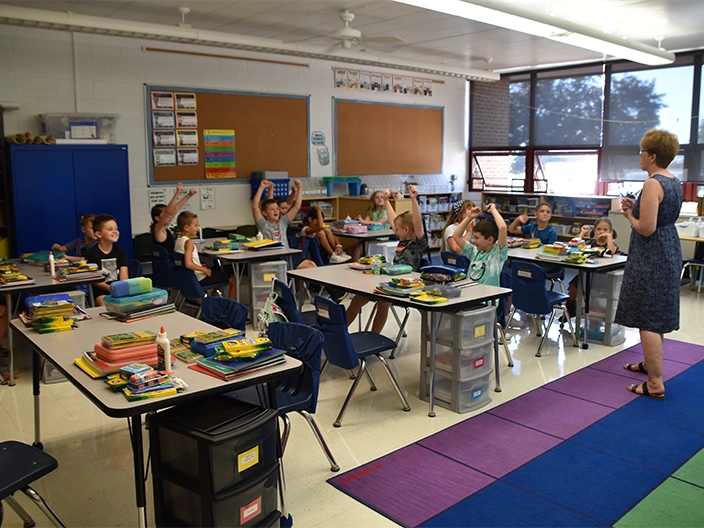Teaching & Learning Programs

Teaching and Learning
The School District of Milton’s Strategic Plan builds upon five core areas of Student Learning Outcomes: Learning Outcomes, Skill Development, College and Career Readiness, Character Development and Sense of Community. Beyond the universal core curriculum, students are provided with a wide range of supplemental programming that targets students’ needs. The School District of Milton continues to update and enhance its programming options for all students.
Response to Intervention
RTI is grounded in the belief that ALL students can learn and achieve high standards when provided with effective teaching, research-based instruction, and access to a standards-based curriculum. A comprehensive system of tiered interventions—gifted & remedial—is essential for addressing the full range of students’ academic and behavioral needs. Collaboration among educators, families and communities is the foundation of effective problem solving. On-going academic and behavioral performance data should inform instructional decisions. Effective leadership at all levels is crucial for RTI implementation.
Learning Supports
Learning supports are provided to students throughout the district in a multitude of ways including through “What I Need” (W.I.N.) time at the elementary and intermediate levels, Advisory and Red Hawk Time at the middle school, and Support for Success, the Testing Center and the Learning Center (Math Lab, Writing Lab and Peer Tutoring Lab) at Milton High School. Learning supports are designed to provide students with additional boosts beyond the Universal instruction in our classrooms.
Title I Programming
Title I is part of the Elementary and Secondary Education Act of 1965 and is the foundation of the federal commitment to closing the achievement gap between low-income and other students. Title I is designed to help students served by the program to achieve proficiency on challenging state academic achievement standards. Currently, Title I Programming is available in the following qualified schools: Milton East Elementary School, Milton West Elementary School, Northside Intermediate School, and Milton Middle School.
Instructional Technology
The district’s Instructional Technology Program Plan outlines four main goals for strong 1:1 technology integration in the categories of student achievement, effective teaching and learning practices, access to information resources and learning tools and support systems and leadership. The Instructional Technology Team prioritizes the goal of building student achievement through the six technology competencies: collaboration, communication, self-directed learning, digital citizenship, learning flexibility and innovation.
Multilingual Learners (ML)
The ML Program Plan provides English Learners with comprehensive programming, support, and assessment to facilitate continued growth in the areas of reading, writing, speaking and listening. Students receive one-on-one and small group support from certified ML teachers and support staff at Milton West Elementary School, Northside Intermediate School, Milton Middle School and Milton High School.
PRISM (Gifted and Talented)
The PRISM (Gifted and Talented) Program is committed to providing educational programs through which every student may develop his or her potential to the fullest. PRISM stands for Promoting and Recognizing the Individuals Students in Milton. Based upon individual student needs, the PRISM programming focuses on appropriate, continuous, and systematic educational services for students identified as gifted and talented.
College and Career Readiness
The School District of Milton invests in curriculum, instruction, assessment and programming that builds students’ college and career readiness. Beyond traditional programming, the district supports School-to-Career (Youth Apprenticeship) programming, Academic and Career Plans, and Articulated Credit (Transcripted Credit and Advanced Standing) options.
Advanced Placement (AP) Courses
Students at Milton High School have the opportunity to choose from 14 different Advanced Placement courses starting their sophomore year. Advanced Placement teachers have all completed training and a course audit to ensure that their curriculum and instruction is aligned with the College Board. Students taking an AP course have the option to take the culminating exam in the beginning of May to earn possible college credits and/or college course exemptions. AP courses provide an excellent opportunity for students to explore college-level content, while gaining invaluable academic and study skills.





